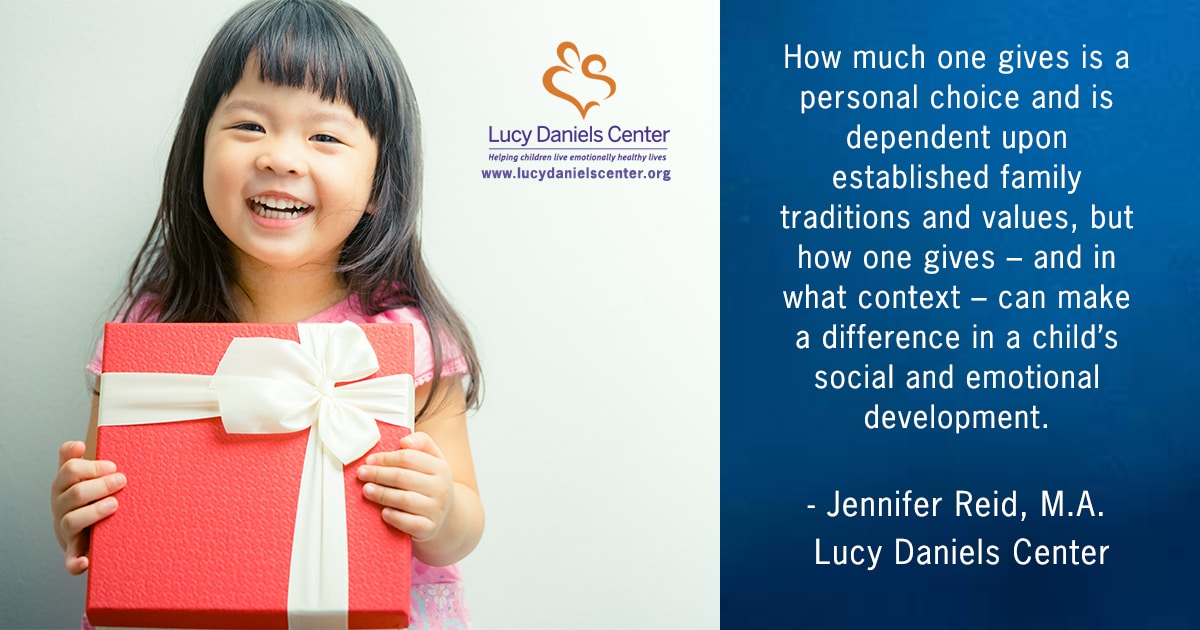Making the Most of Holiday Gift-Giving:
Keeping a Balance After a Most Unusual Year
As 2020 winds down and we move into the holiday season, children’s sense of the past year is likely colored by memories of having spent most of it out of school, without extracurricular activities, and under pandemic restrictions that have limited their experiences in their social, emotional, and academic development. The holiday season brings the opportunity to restore some of the magic of childhood and embrace traditions that provide some semblance of normalcy.
Gifts have the potential to provide temporary distractions from reality, something many people these days are longing for and certainly something many parents wish to bestow upon their children. Some parents may wonder how much to give or may feel compelled to give an abundance to make up for what has been a tumultuous and stressful year. How much one gives is a personal choice and is dependent upon established family traditions and values, but how one gives – and in what context – can make a difference in a child’s social and emotional development.
Balancing Giving with Receiving
Developmentally, the act of receiving has more meaning and significance when there is a coinciding act of the opposite, in this case: giving. This is true for all steps in development. When a child learns to walk on her own, for example, she gains mobile independence but gives up the comfort and ease of being carried everywhere. In the case of receiving new items, the coinciding action is more than giving gifts to other family members, although this, too, has its place socially. Emotionally, receiving new toys, games, and clothing is balanced by actively and consciously making room for the new.
Reflecting on Growth
The end of a year provides a wonderful opportunity for children to reflect on their growth and what they have learned, which can lead to thinking about what they no longer use or need. As they go through toys they no longer play with or clothes they’ve outgrown, you can help your child deepen their sense of empathy as you imagine together who would benefit most from being the next recipient. The experience can feel more rewarding to children when they know where their donations are going, especially if you are able to have details such as, “Your bike that is too small for you is going to a little boy who has never had a bike before.” In some cases, it may be a younger sibling or a cousin who would be a just-right recipient, but there are also many local charities that are in need of gently used toys and clothing, especially this year.
Making Room for New Experiences
By making this a joint project with your child, you are supporting development in both emotional and social ways. Helping a child be mindful of their growth provides opportunities for reflection and bonding over shared memories. Some items may be too dear to pass on to others, and they deserve the recognition of why that is as well as a special place to be stored away. As children make room for the new, they increase their awareness that the new items they are receiving are a natural step forward because of their growth and achievements. Socially, drawing on empathy and being able to imagine others’ needs is a timely lesson as children have missed out on social interactions with peers over the past year. Despite all of the challenges put before them in 2020, many children have demonstrated flexibility, resilience, and adaptability, making this winter season an optimal time for parents to help them reflect not only on what was hard this past year, but also on all the strength and courage it has taken to persevere.
especially for our children. Lucy Daniels Center provides up to 4 hours of short-term, solutions-focused support for parents and their children provided by a licensed mental health counselor at no cost to help children and families survive and thrive through the COVID-19 crisis and find resilience, courage and meaning in the most trying of times.

